South Sudan’s youth come of age in the face of chaos
- Text by Siobhán O'Grady
- Photography by Alexia Webster

It’s late on a Saturday afternoon in May but the sun is still beating down on the South Sudanese capital of Juba. A fleet of cars carrying Annet Angaika and dozens of other young hip-hop singers, dancers and DJs pulls up to a dock on the outskirts of town.
Annet, a 22-year-old vocalist better known in that circle by her stage name, Neetah Baby, hops out, smooths her tight black skirt and matching cropped tank top, runs her hands over her long brown weave and poses for a selfie-stick while her friends clank glasses of warm whiskey and pop bottles of champagne. Then they board a sunset cruise down the White Nile River.
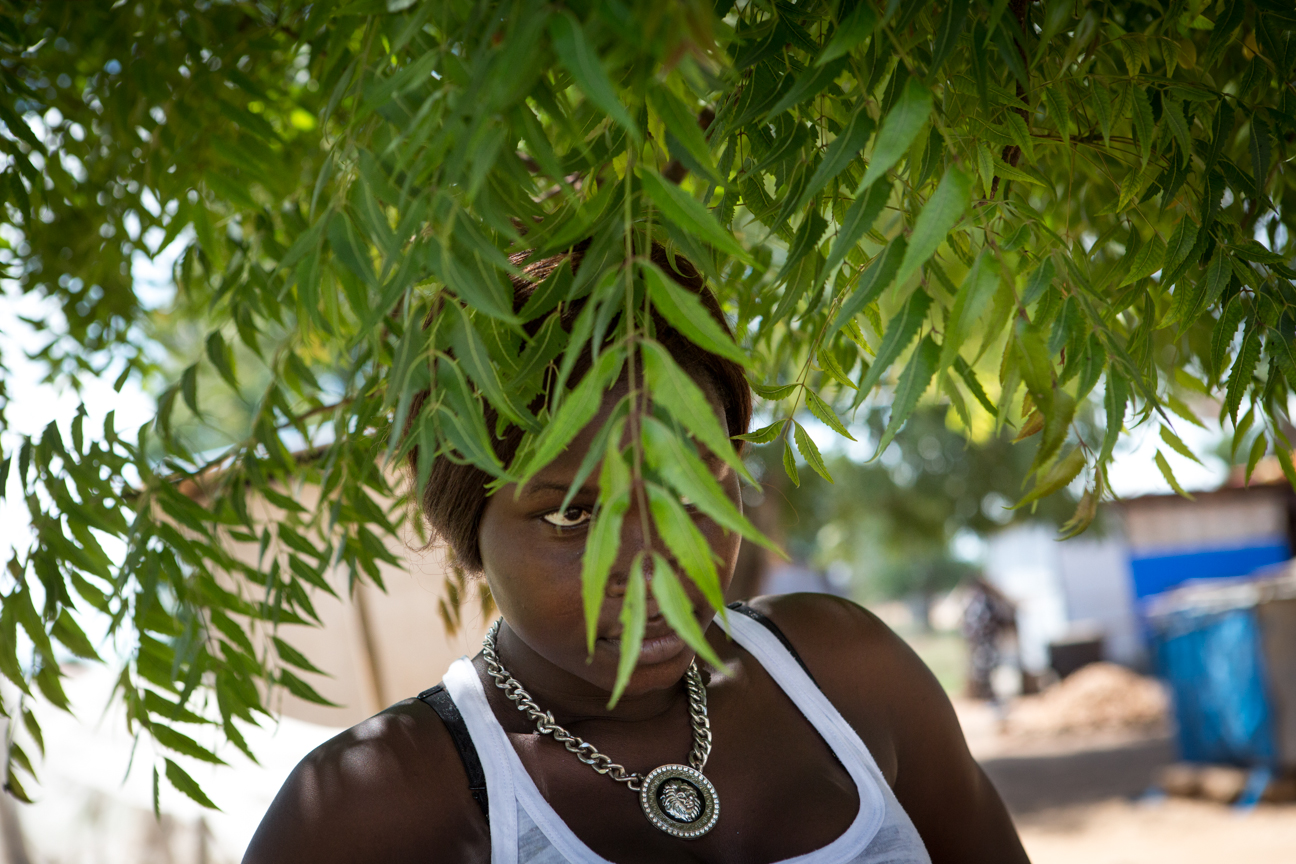
It’s been two-and-a-half years since bloody conflict broke out in the same city, sparking chaos that immediately divided the world’s newest nation along ethnic lines and eventually leaving more than 50,000 dead. But on this weekend afternoon, the mood in Juba is relatively light.
Two weeks earlier, former vice president-turned-rebel leader Riek Machar, who belongs to the Nuer ethnic group, returned to the capital for the first time since the war began, bringing with him the promise that he and his rival, President Salva Kiir, a Dinka, were willing to work together to form a unity government.
On board the yacht, the party’s organiser, 26-year-old Sam Lupai, stands at a DJ station on the top deck and calls out to his guests. “There is only one rule on this boat,” the popular radio personality shouts into the microphone. “And that is that there are no rules or regulations. Now put your hands up for peace!”
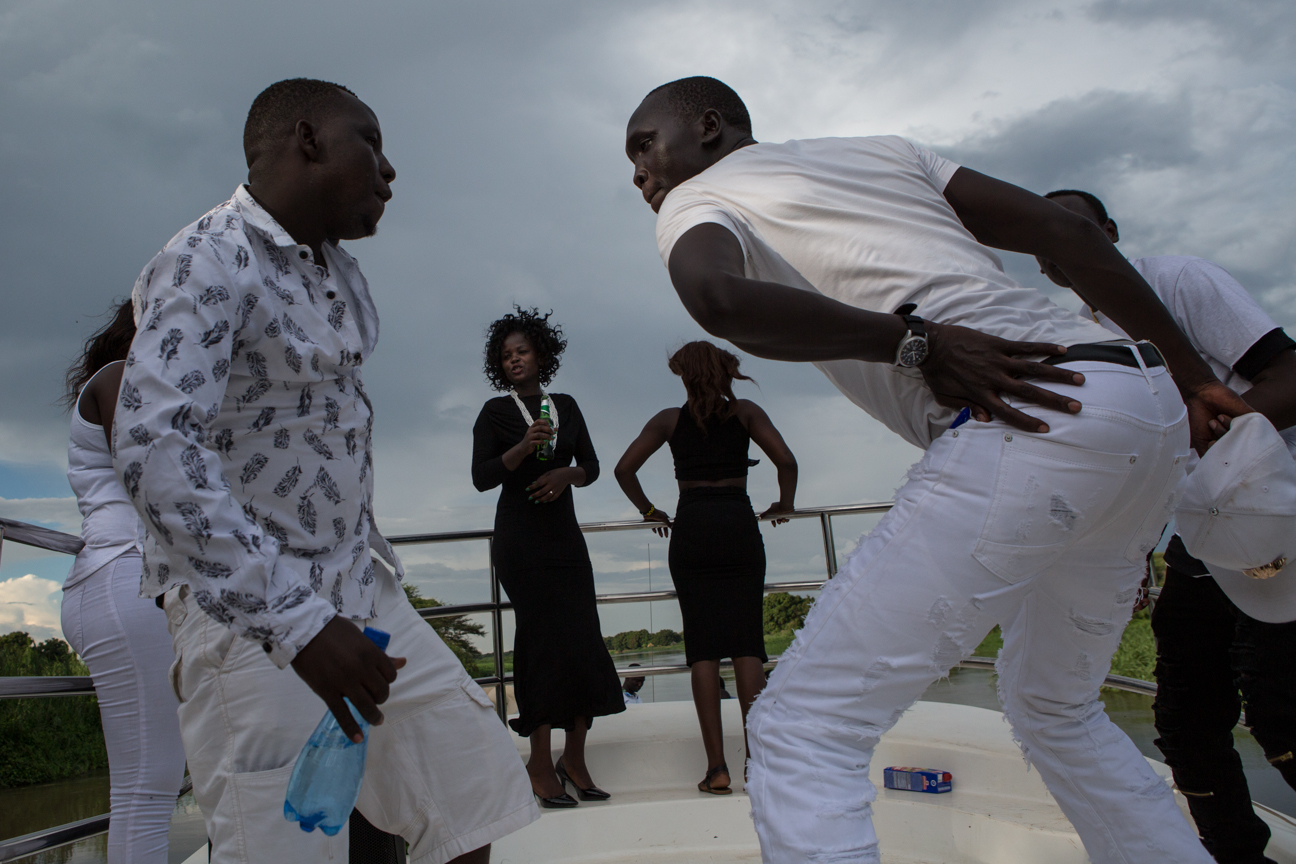
The crowd erupts in cheers as Lupai cranks the music and everyone begins to dance.
A few miles away, tens of thousands of people are crowded into a United Nations Protection of Civilians camp, in a seemingly never-ending jumble of tents – one that has expanded since late 2013 to accommodate a growing number of people fleeing the country’s merciless civil war.
The 20-somethings on board the yacht, decked out in ripped skinny jeans, retro John Lennon-inspired sunglasses and metallic-toed Adidas Superstar sneakers, offer a jarring contrast to the conditions of the residents of that U.N. camp down the road. But it is only by chance that they are not among those living there themselves.

The Bolok Taekwondo Club train on a field in a suburb of Juba – one of the city’s few public recreational spaces.
The people sheltered there and in other U.N. sites around the country are just a handful of the 1.7 million people internally displaced by the conflict. Another million have fled the country as refugees, running from mass rape and systemic murder at the hands of government and rebel troops.
And despite the show of normalcy on board the rented yacht, the guests who paid 1,000 South Sudanese pounds ($15) each for a ticket are no strangers to the civil war that has unfolded around them over the past three years.
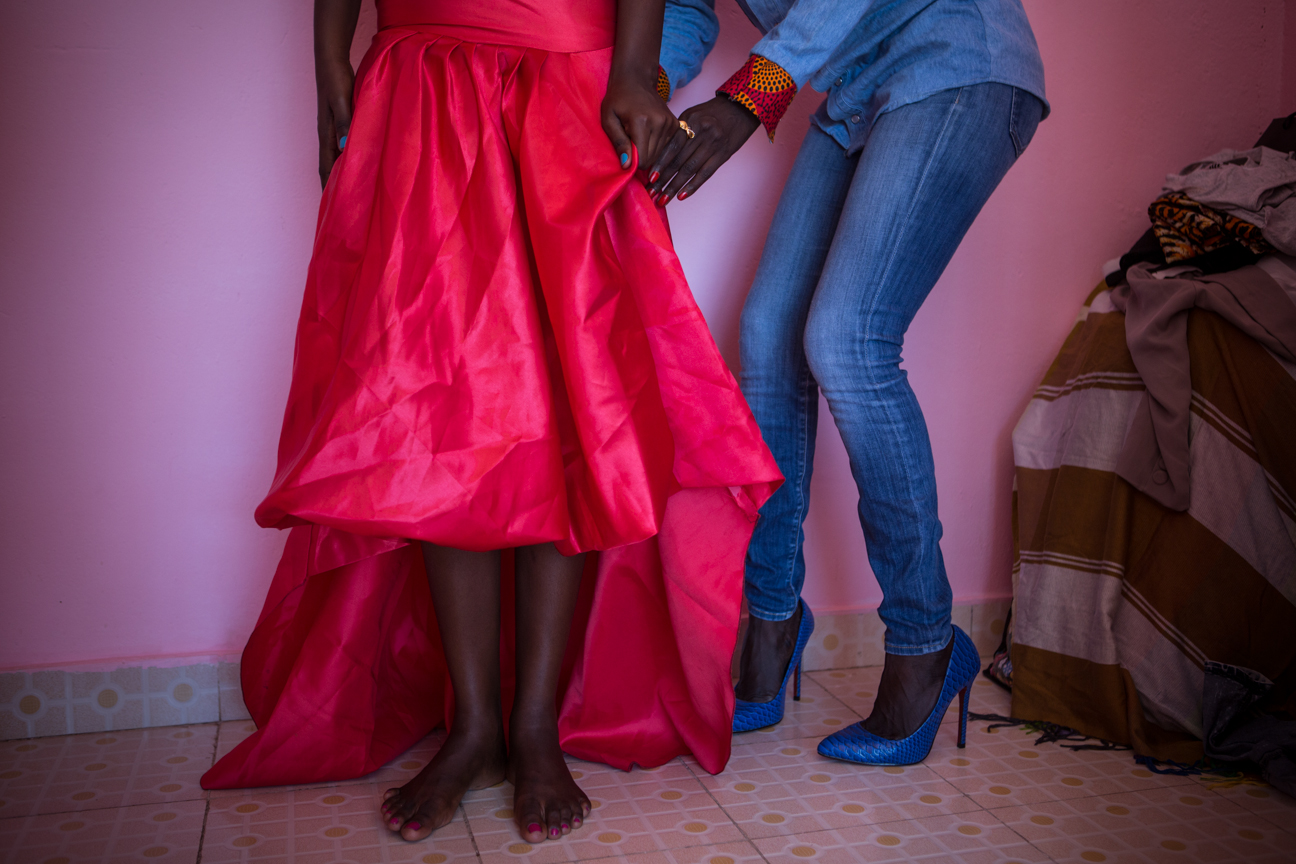
The same goes for their relationship to the civil war immediately before it, which lasted decades and killed some two million people before paving the way for South Sudan to split from its northern neighbour in 2011.
Instead they belong to a rapidly growing group in the country’s intricately woven society: an aspiring class of young returnees, displaced by the first conflict as children and disrupted by the second as adults.
Today, they are doing whatever they can to forge their own identities and come of age as their young nation collapses around them. And that’s where music comes into play.
Neetah Baby didn’t step foot into South Sudan until she was 15. Born in a refugee camp in northern Uganda, she never met her father, who was killed in the conflict that forced her mother into exile.
Neetah spent her entire childhood in that camp, running out of hope that she would ever see her mother’s homeland. Then, in 2008, when sovereignty was within reach, she and her mother boarded a bus full of refugees who finally had the chance to return.

Singer Neetah Baby outside her cousins clothing store in Juba, South Sudan.
At one point the driver pulled over so that the passengers could get out to sing, dance and kiss the same ground that they hadn’t seen in decades. “I thought maybe after staying for so long in the refugee camp where I was born, I was finally going to be happy,” Neetah says.
But even for those who call it home, Juba remains a city permeated by a constant, palpable anxiety – especially for young women. There’s plenty more to fear in the capital than just war: military checkpoints manned by drunk soldiers holding loaded AK- 47s, impunity for sexual assault, and armed robbery make even the most trivial of daily tasks a burden.

‘Neetha Baby’ in her cousins’ boutique clothing store in Juba, South Sudan.
Lounging on the floor of her cousin’s small clothing boutique in downtown Juba, on another sweltering day in May, Neetah describes her routine. She shuttles between Uganda, where she’s studying procurement and logistic management, and Juba, where she shares a bed with her mom in a small dirt-floor home near the military barracks where the civil war began.
Neetah helped pay for the house by working as a cleaner, but when she decided to go back to school she needed to find a side-hustle that still paid. She turned to singing, and her first hit, ‘Binia Wewe’ (‘Foreign Girl’) took off.
In a video for that track, Neetah and her girlfriends tell off government soldiers and motorcycle taxis who both ask for their papers and scold them for dressing in a style they see as too risqué for South Sudan. The lyrics draw attention to the frustrations of a generation raised abroad, who return home only to be told they don’t belong on their own capital’s streets.
“This is my fashion, why you call me that? Everywhere I go, you wanna pull me back,” she sings, wagging her finger at the camera. In the video, Neetah exudes a feminist confidence that suggests she’s comfortable talking back to men on Juba’s streets. But the reality on the ground is different.
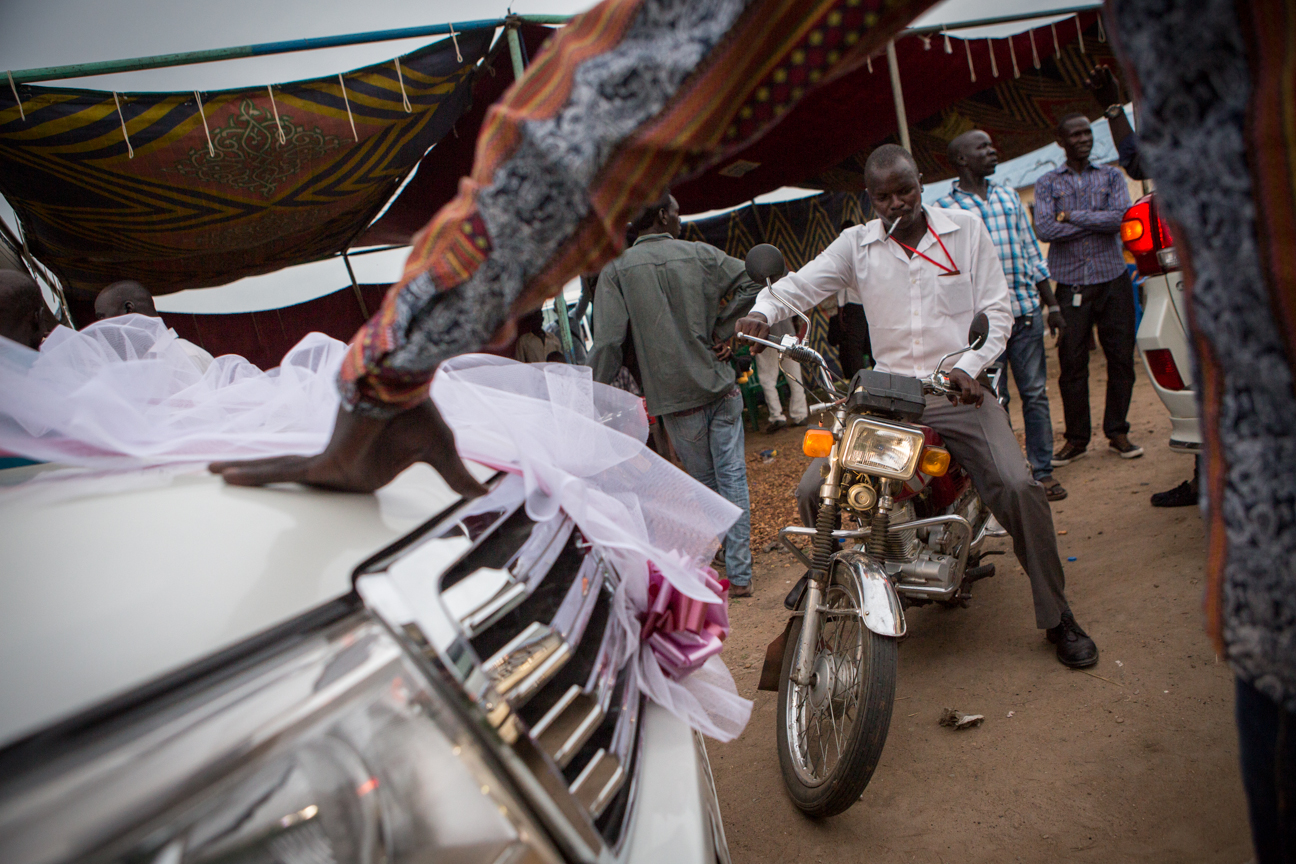
Once, a government soldier beat her up after he accused her of being a paperless Ugandan. He didn’t believe her when she refused to pay a bribe and insisted she was South Sudanese.
“I said to him, ‘You can go ahead and kill me because I’m not giving you anything. I am willing to die in my country, so just go ahead and kill me,’” she says. “Then a police officer who was watching said, ‘You see, only a South Sudanese would talk like that. Let her go.’”
Now, when she performs in a club, Neetah spends the entire night there too, sometimes sleeping in a chair to avoid passing through checkpoints before sunrise.
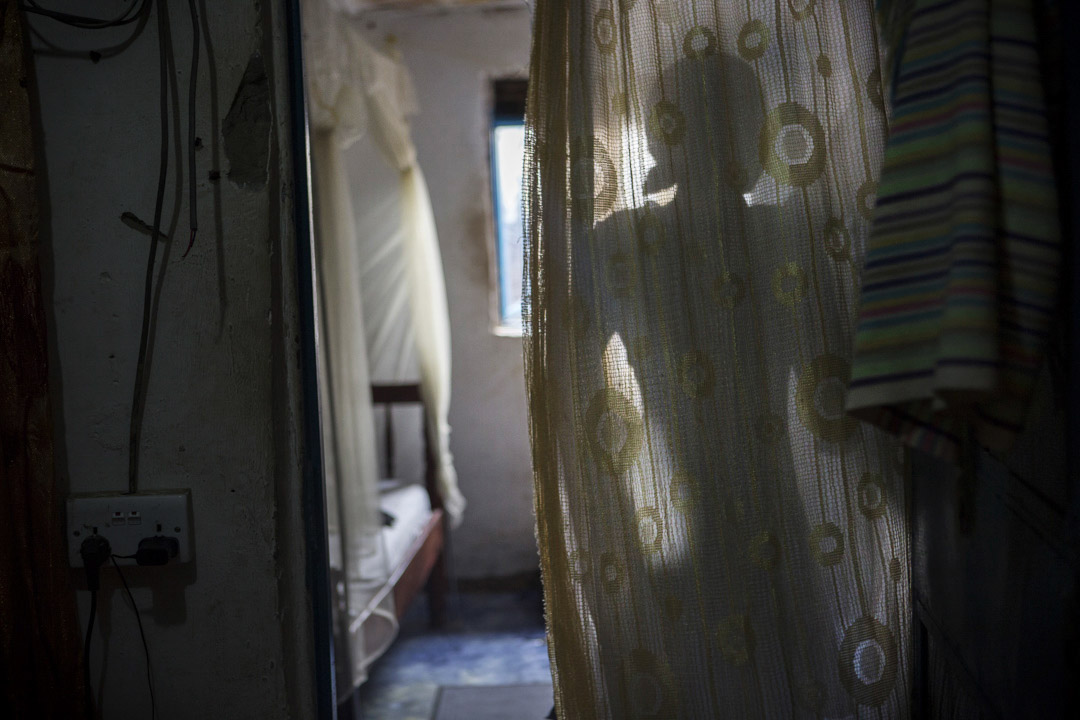
Still, those performances are what pay her tuition bills. When she’s in South Sudan, she books as many gigs as she can, performing at Juba hotspots like Vegas Club and sometimes traveling to smaller towns for lower-profile shows.
The performances earn her at most 4,000 pounds a pop, which is only around $55. What doesn’t go to her tuition goes to her mom, who hasn’t been able to find work for more than a year. “Life is hard,” she says. “But our country listens to so much music, so when you put something in music, that’s when the youth come together.”
Establishing a space for young people like Neetah to express themselves was top of Jok Madut Jok’s list when he served as undersecretary of culture in the newly independent South Sudan.
In addition to a national archive intended to document the history of the country’s 64 tribes, he proposed constructing a theatre that would serve as a venue for South Sudanese musicians and artists, regardless of skin colour or mother tongue. His colleagues soon wrote it off as impossible.
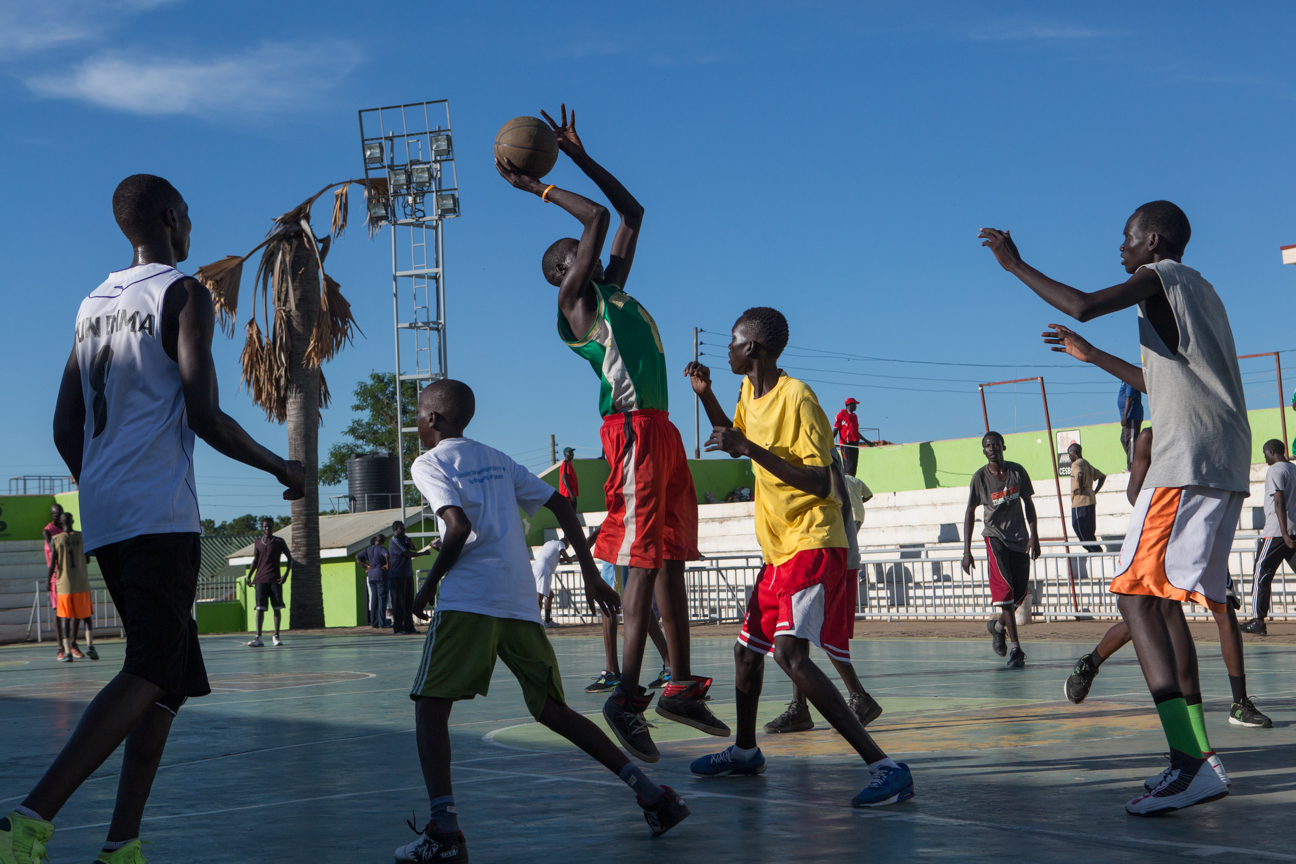
“Many saw the art projects as a luxury in a country where you needed to build a hospital, where you needed to pay the army to bring stability, where you needed to create courts to build a justice system so that there was accountability for the earlier wars,” Jok says.
“It became a question of choosing between feeding the people in their bellies versus feeding the people in their souls and minds through the arts, so obviously it wasn’t so much of a no-brainer which one you’re going to do first.”
The lack of resources didn’t stop some from trying. Take 28-year-old Okuta Ceasar Malis, one of South Sudan’s most famous hip-hop artists who returned from Uganda ahead of independence with no money to his name. He started writing songs to pass the time and, 10 years later, just catching a glimpse of him is enough to make you want to know who he is.

Singer Okuta Ceasar Malis, known as ‘Silver X’, in his custom-made armchair and imported convertible in Juba.
With a watch on each wrist, a ring on almost every finger, earrings in both ears, and at least two chains around his neck at all times, he’s the first to admit that he dresses to be noticed.
His choice of car has the same purpose: the yellow convertible imported from Japan is one of the flashiest driven on Juba’s few miles of paved road, and looks laughably out of place outside the small mud-brick, one-room house he calls home.
Even the story behind his stage name, Silver X, signals his desire to stand out: as a student in Uganda, he lied to his headmaster and said he had to wear a silver earring because it was tradition at home and to remove it would bring him bad luck. The headmaster bought it, and the nickname stuck.

Silver X outside his Juba house in his Japanese imported convertible.
When we first meet in the summer of 2016, Silver is living back in South Sudan. He sits under a mango tree near his house and breaks down the story of his rise to fame.
In 2007, after he and a group of friends had written a few songs about peace and homecoming, he visited a nearby government office to see if he could sell the local secretariat on funding them to record an album.
The bureaucrat working that day saw the lyrics as a potential avenue to inspire the diaspora to return home and offered him a $1,000 grant to offset the studio costs. “People came back from the other side with a lot of trauma,” Silver says, recalling the inspiration for his first tracks.
“A lot of the lyrics were just about encouraging people [to remember] that it’s home. You can’t hang out in Uganda for the rest of your life waiting for peace. If others can come, why don’t you?”

Singer Neetah Baby outside her cousins clothing store in Juba, South Sudan.
The New Sudan Superstars, as they came to be known, split up soon after recording those songs, but Silver continued making music on his own. His first solo hit ‘Looking for a Job’ lamented the difficulties of finding work in a country that values a job applicant’s father’s name more than the content of his or her CV. “It touched people’s hearts, especially the youth,” he says. “And that’s how Silver X was born.”
Okuta has since produced nine albums that have helped turn Silver X into a household name in South Sudan. His 2014 song ‘Let’s Stand Together’ called for an end to the war, earning him some small international recognition. But even he isn’t protected from the toll of the conflict.
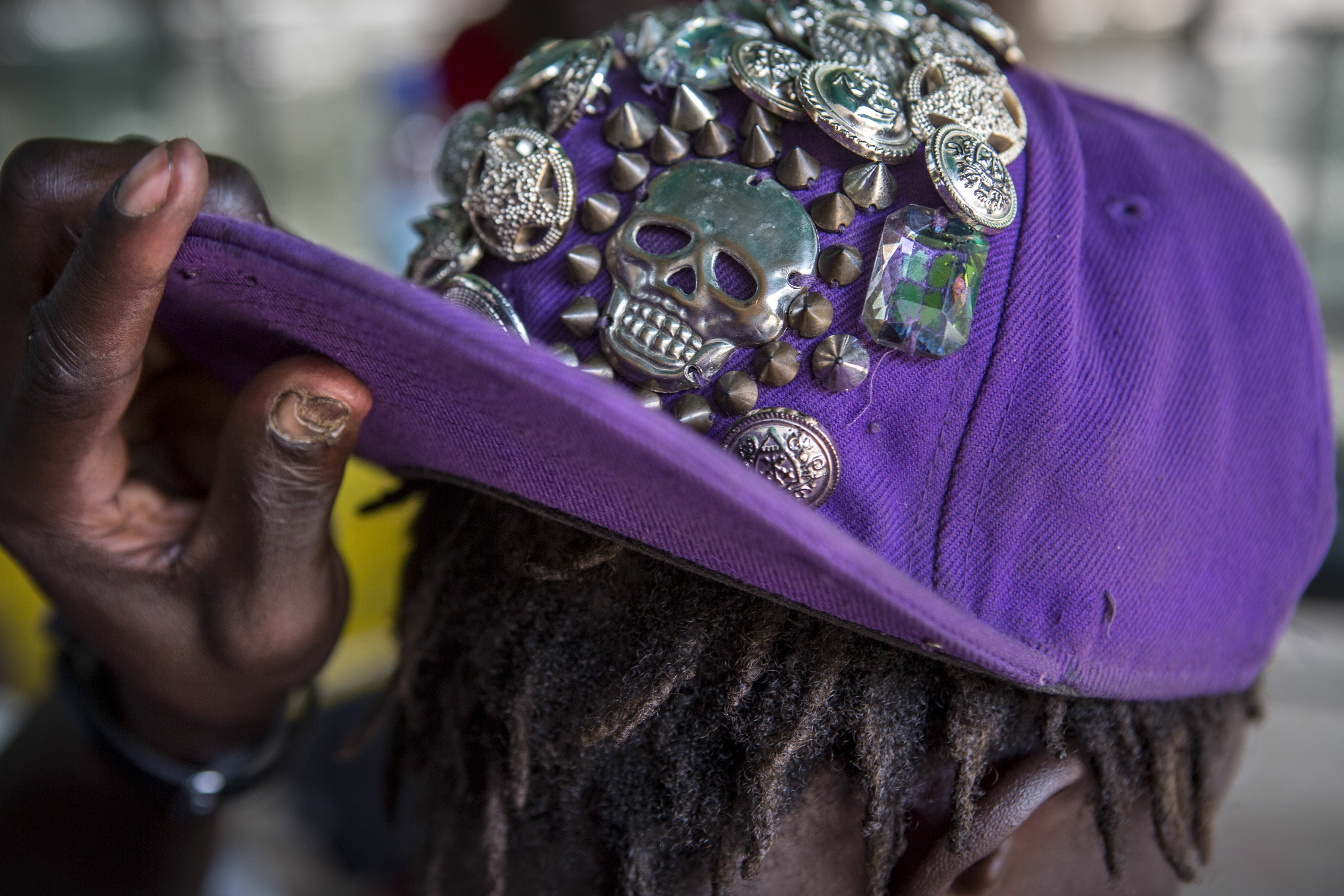
Over Heineken and shisha at a bar in Kampala in January, Silver says he was hanging out at a radio station studio in Juba last July when violence unexpectedly broke out again between government and rebel troops, throwing the earlier peace deal into limbo and leaving hundreds dead.
It plummeted the country back into turmoil and prompted Machar, who was serving as first vice president, to flee the country again. “We did not know what they were cooking in the kitchen,” Silver X says about the troops. “Just like a customer in a restaurant waiting for food, sometimes when they serve you, you’re like ‘What? I didn’t order this!’ We were shocked.”
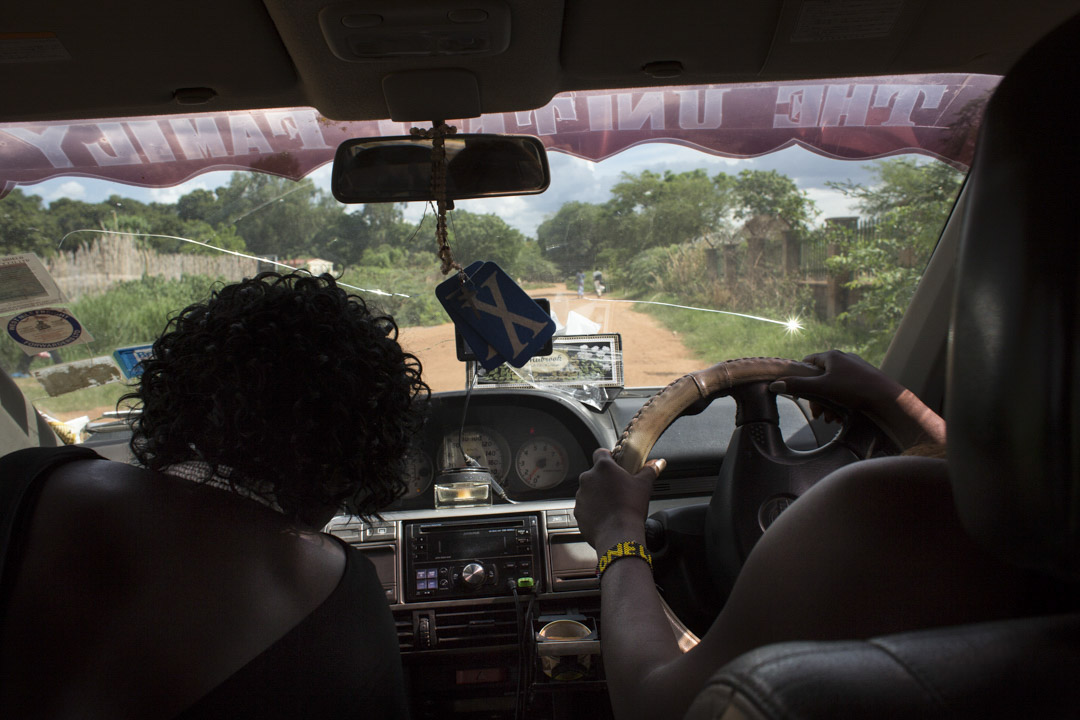
Stuck in that studio for four days, he used the time to write ‘Belet Jian’ (or ‘The Country is Hungry’), which reminded South Sudan’s most privileged – himself included – that they have the ability to walk away from conflict when everyone else has to stay.
Friends in national security almost immediately warned him that the lyrics had infuriated government officials, putting his life at risk. He paid $900 for a last-minute flight to Kampala, and has since floated between Kenya and Uganda, recording a few new songs and performing the occasional gig, but mainly wishing he could just return home.
“I don’t want to live in a place where I feel like I’m home; I want to live in a place where I know that I’m home,” he says. “It doesn’t matter how bad it looks to anyone else; if it’s home, then it’s where you’re supposed to be.”

Singer Silver X on a boat during the Nile River Cruise party.
Still, he finds some comfort in knowing that his words have inspired those who didn’t have the luxury to flee. “They stopped it from the radio stations, but they can’t stop it from the streets,” he says of his latest song. “People have it on their cell phones. The radios don’t play it but people know it, people have it, people love it.”
Neetah was three months pregnant by the time the fighting started again. She spent the next few weeks under her bed, praying looters or soldiers wouldn’t rape her. When the government started shutting down radio stations and enforcing an early curfew, it became nearly impossible to continue making music.

Singer Annet Angaika (‘Neetha Baby’) on a boat cruising across the White Nile River.
Neetah no longer saw a good enough reason to stay. But having less money than Silver X, she also had fewer options. So she fled back across the border into northern Uganda, to the camps she thought would remain a part of her past. “People were shedding tears like hell,” she says in a phone call from northern Uganda. “They give you some tarp, some towels, and they want you to start a life.”
Back in the camps, Annet isn’t so much Neetah Baby as she is one of more than 2,000 refugees taking that same route into Uganda each day. Life isn’t much easier than it was in Juba, but even if her future doesn’t feel more certain, at least her safety does. “I used to think, ‘I want to go to my country and do something better. I should be remembered for something,’” she says. “Now all we want is peace.”
On New Year’s Day, Silver X pulls up to the northern Kenyan town of Kakuma, where a refugee camp originally built to house South Sudanese boys running from conflict in the 1990s now shelters 200,000 people from around the region – including tens of thousands who ran from South Sudan’s most recent war.
At his first show in the area, which he called Peace Concert, there’s a good turnout: a huge crowd of people who’ve been waiting too long to go home. But singing for them keeps him going. “I’m always optimistic. Everything has its time and nothing lasts forever,” he says. “I still feel like there’s a chance for peace. When is what we don’t know.”
This reporting was made possible by the International Women’s Media Foundation.
This article appears in Huck 59 – The Game Changer Issue. Buy it in the Huck Shop now or subscribe today to make sure you never miss another issue.
Enjoyed this article? Like Huck on Facebook or follow us on Twitter.
Latest on Huck

Analogue Appreciation: lullahush
Ithaca — In an ever more digital, online world, we ask our favourite artists about their most cherished pieces of physical culture. Today, it’s Irish retro-futurist lullahush.
Written by: lullahush

Spyros Rennt captures connection and tenderness among Berlin’s queer youth
Intertwined — In the Greek photographer’s fourth photobook, he lays out spreads of togetherness among his friends and the German capital’s LGBTQ+ party scene.
Written by: Isaac Muk

The rebellious roots of Cornwall’s surfing scene
100 years of waveriding — Despite past attempts to ban the sport from beaches, surfers have remained as integral, conservationist presences in England’s southwestern tip. A new exhibition in Falmouth traces its long history in the area.
Written by: Ella Glossop

Plestia Alaqad: “Journalists should focus on humanising people”
Huck’s April interview — Having become one of the most crucial and followed voices from inside Gaza in the aftermath of October 7, the award-winning author and journalist is releasing a new memoir, ‘The Eyes of Gaza’, collating diary entries made over the past 18 months. We caught up with her to hear more about it.
Written by: Isaac Muk

The instrument makers taking DIY music to a whole new level
What does it take to construct a modular synth? How do you turn a block of wood into a double bass? Here, four craftspeople explain why they chose to rip up the rulebooks and build their own music-making machines.
Written by: Daniel Dylan Wray

Southbank Centre reveals new series dedicated to East and Southeast Asian arts
ESEA Encounters — Taking place between 17-20 July, there will be a live concert from YMO’s Haruomi Hosono, as well as discussions around Asian literature, stage productions, and a pop-up Japanese Yokimono summer market.
Written by: Zahra Onsori